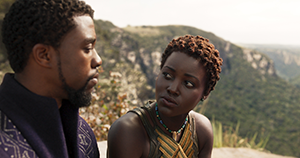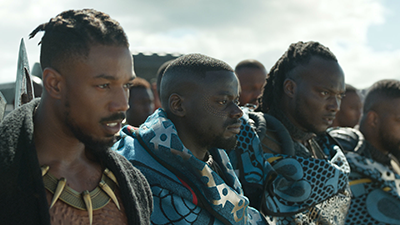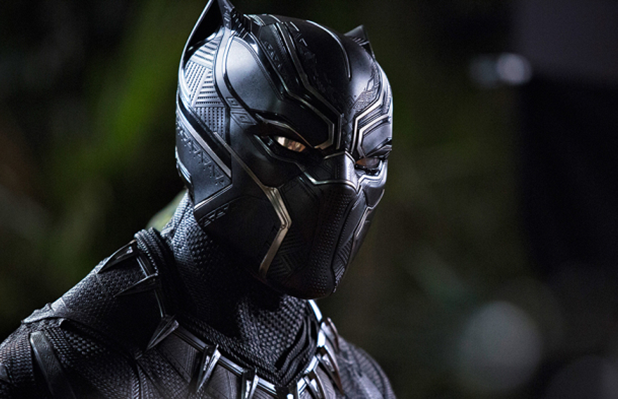Warning: review contains some spoilers
In some ways, Black Panther is the kind of movie we’ve come to expect from Marvel Studios, lots of action, funny moments, cross-references for fans, cool special effects and a plot that can captivate you for over two hours. What makes it stand out compared to other Avengers flicks is the contribution it makes to current heated discussions of race, gender, identity and politics. The hype around the film, and the reaction from the African American community in the United States, testify to its timeliness.
The Black Panther is the King of Wakanda, a seemingly meek and humble African country who keep to themselves. However, their poor farming ways are a clever facade designed to hide their abundant wealth and superior technological advancements. The past Wakandan kings are kings who have sought to protect their people by isolation, celebrating their advanced ways and keeping them for themselves.
“You were wrong to turn your backs on the world.” - Erik Killmonger
King T’Challa, the Black Panther, spends the film wrestling with the traditions and actions of Wakandan kings past and the world around him. When Wakanda has the resources to help so many who are suffering, is it right to withhold them so they can continue to protect themselves? In contrast, the solution is very simple to Erik Killmonger - give your resources (mainly your weapons) to the poor and oppressed and equip them to fight back. He sees Wakanda as part of something bigger, Africa. Therefore it is Wakanda’s duty and responsibility to step up and provide for their oppressed brothers and sisters, even if it compromises the security and comfort of Wakanda itself.
What does staying comfortable truly cost?
When our idea of discomfort is the air-conditioner not working on a Sunday morning, are we in danger of being just like the Wakandans, clinging to idols of safety, security and luxury? None of us can plea ignorance to the injustices and sufferings of the world, both overseas and in our own backyards. Jesus’ warning confronts every one of us who have made an idol out of safety and comfort.

One of the big questions Black Panther asks is how we should use an abundance of resources for the good of the world. As Christians, we know the incredible generosity of Jesus Christ, who didn’t hold anything back from us. He “made himself nothing, taking on the very nature of a servant, being made in human likeness” (Phil 2:6) so that we could be free from sin and suffering, and so that we would enjoy the riches of God’s Kingdom with him forever. How much more should we be motivated by the example of Christ to forgo our comforts for the sake of others?

While we need to change the way we treat the world, the reality is that we cannot save the world simply by sharing resources. Black Panther suggests this is the start of the solution, to reform a system of selfishness and to equip others to be prosperous. Yet, we cannot rely on reforming the world’s systems and mode of operation alone. This is not necessarily the cause of injustice. The reality is that our hearts need reforming, so that we don’t, and don’t desire to, corrupt the social structures in place. As long as we have corrupt hearts, no governing system can offer anything more than a band-aid solution to the world’s brokenness, oppression and poverty. It’s easy to leave Black Panther inspired, ready to protest our leaders for change and compassion, ready to donate ourselves to causes that champion the rights of the vulnerable. These are all good things to do, and we should be a voice for the voiceless. But without the gospel these things can only offer a partial hope. They will ultimately fail to bring the true restoration that the world needs, the restoration of our hearts and the restoration of relationship between God and man that comes through Jesus Christ.
























